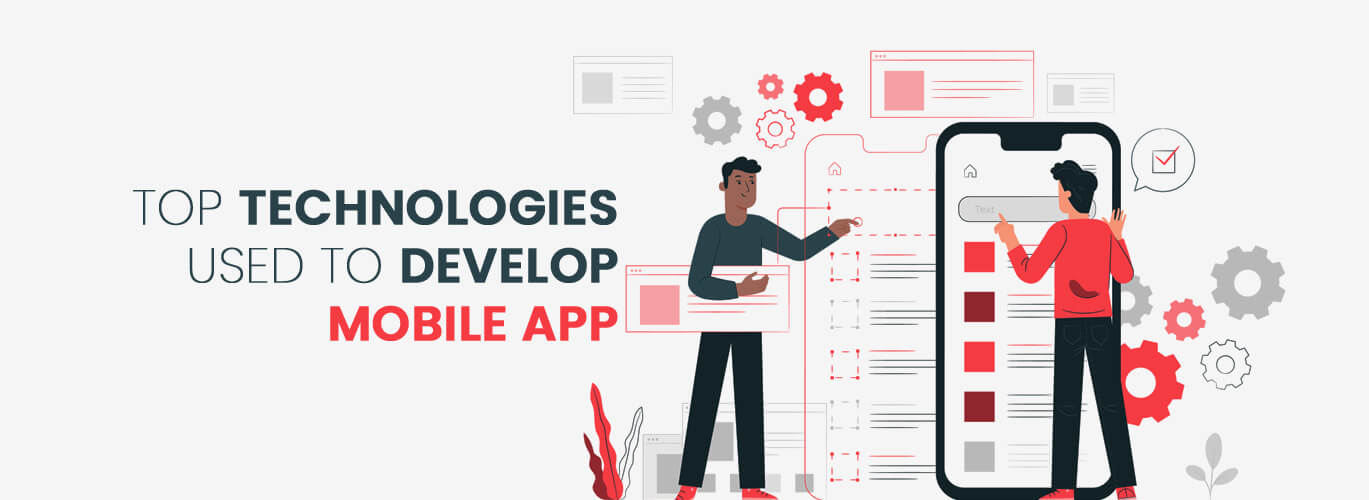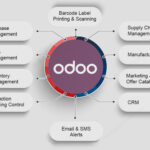We are in 2022, but there is one question in everyone’s mind even now : what should you learn to develop a mobile app?
An application is a combination of effective coding skills in various platforms. Let’s look at different programming languages for mobile app development.
- 1
Flutter
Flutter is an open-source mobile app development SDK (software development kit) developed by Google that drives developers to build cross-platform applications. You can make an application that runs easily on both the Android and iOS platforms by utilising Flutter. People these days prefer cross-platform applications over native applications that run only on a single platform, so the technology is highly demanded.
Dart is used as the programming language to build native interfaces. It also eases the developers to write the entire code from scratch to develop a single app for two platforms. Xianyu by Alibaba, Google Ads and Reflectly are the three well known mobile apps developed using Flutter.
- 2
Python
Python is a very popular programming language. Python is easy-to-use, fast and easy-to-deploy. This language helps to develop scalable web apps.
Python has built many popular apps like Instagram, YouTube, Pinterest, and SurveyMonkey. This language offers excellent library support and has a large developer community. It also has strong integration, and it offers improved control capabilities and provides a high starting point for all startups.
- 3
Xamarin
A single language, C# is used by Xamarin to develop apps for both Android and iOS platforms, which allows developers to give their applications a native look and feel. Depending on the .NET framework, Xamarin is consistent with a range of useful .NET features like Asynchronous programming, Lambdas, and LINQ. Android and iOS both versions of Xamarin feature built-in source code compilation (ARM for iOS) and (Just-in-Time compilation for Android), which is automated and tailored to manage specific problems like garbage collection, memory allocation and platform interoperability.
Python has built many popular apps like Instagram, YouTube, Pinterest, and SurveyMonkey. This language offers excellent library support and has a large developer community. It also has strong integration, and it offers improved control capabilities and provides a high starting point for all startups.
Like this, you will have an easier time making important design choices, experimenting with various ideas for your application, and ensuring the official launch goes smoothly.
- 4
Ionic
This is a framework used for developing high-performance apps. Iconic has all of the features you will need, which includes variables & functions, and it even has its own built-in language processor.
It is simple to use as its template-based, which means everything happens inside one file. There are no external libraries needed, which makes development faster as they’re already included by default. This also decreases future maintenance costs.
Ionic is mainly used in the development of Progressive Web Apps (PWAs), hybrid, and cross-platform mobile applications as it uses Apache Cordova (PhoneGap) including Angular to help developers build Android and iOS applications that easily operate together.
One of the main benefits of Ionic is that it lets mobile app developers employ different UI components in the application framework, which includes filtration, inputs, views, action sheets, and easy navigation.
- 5
Swift
This is an open source programming language for iOS, OS X, watchOS and tvOS apps that develops the best of C and Objective C. It supports safe programming patterns and includes modern features to make programming more flexible, simple and more fun. It is the first industrial-quality systems programming language that is as striking and enjoyable as a scripting language.
- 6
Objective C
Objective C is a general-purpose object oriented programming language. This is the main programming language used by Apple for OS X and iOS and their respective application programming interfaces (APIs), and still it is more popular than Swift. Most apps still feature a code-base written mostly in Objective C even if it is an old programming language.
- 7
React Native JavaScript
JavaScript is for building cross-platform (single codebase deployed on multiple platforms) mobile apps with React Native. React Native uses a popular programming language like JavaScript to code once and then that code gets translated into code that is native to the platform it’s getting deployed to. This makes sure that the resulting app is fast and performs like an app written with a native language would. Working with a popular programming language also means that there’s a lot of support in a huge library of reusable code modules and packages.
Listed above are some of the well-known mobile app development programming technologies. Choosing a perfect technology to develop your app is important as it depends on what type of app one needs, how it should look, and on which platform it should work.






